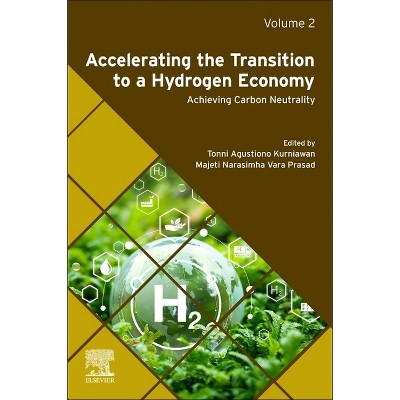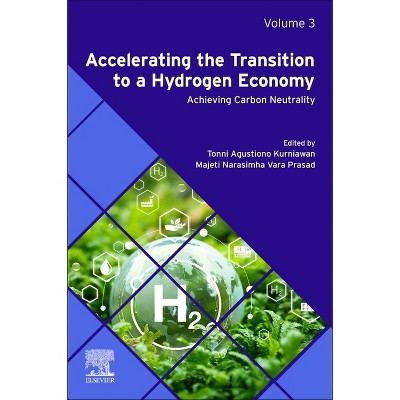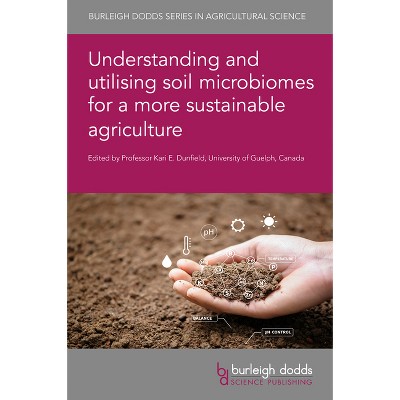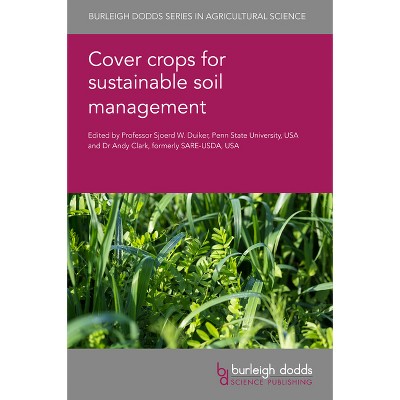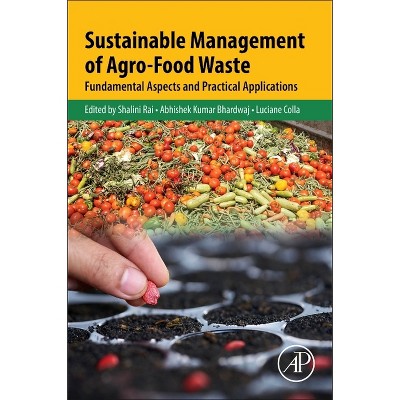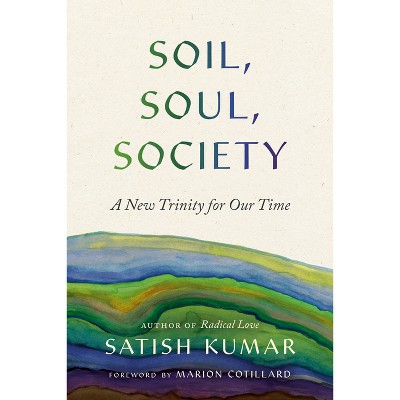Agroecological Approaches for Sustainable Soil Management - by Majeti Narasimha Vara Prasad & Chitranjan Kumar (Hardcover)

About this item
Highlights
- Agroecological Approaches for Sustainable Soil Management Enables readers to strengthen existing agricultural strategies to sustainably solve contemporary problems like food supply chain gaps and food scarcity Agroecological Approaches for Sustainable Soil Management explains strategies to check the deterioration of soil quality, irrigation water quality, reuse of wastewaters in agriculture after treatment, organic fertigation, and corporate fertigation, to transform current agriculture into sustainable agriculture, and demonstrates cost effective technologies for sustainable development of site-specific ecosystems.
- About the Author: Majeti Narasimha Vara Prasad is an Emeritus Professor, School of Life Sciences, University of Hyderabad, India.
- 528 Pages
- Technology, Agriculture
Description
About the Book
"Land degradation is one of the most serious concerns of the 21st century, and the extent of the degraded land is more than 33% of the global land. If the degradation of land continues at the same rate, more than 90% of the global land will be degraded by 2050. Recent studies have shown a continuous increase in global saline-sodic soils up to the extent of 1128 million hectares worldwide. The commercial application of composite biochar, liquid organic fertilizers, and drip irrigation system, and their modification strategies using microbes, vermi-composts, and green plant materials to sustain soil quality and immobilize soil pollutants can restore our degraded lands. After the restoration phase, these lands can be utilized for producing biofuel, timber, grasslands, forage crops, and agri-tourism in the rural and semi-rural-urban areas."--Book Synopsis
Agroecological Approaches for Sustainable Soil ManagementEnables readers to strengthen existing agricultural strategies to sustainably solve contemporary problems like food supply chain gaps and food scarcity
Agroecological Approaches for Sustainable Soil Management explains strategies to check the deterioration of soil quality, irrigation water quality, reuse of wastewaters in agriculture after treatment, organic fertigation, and corporate fertigation, to transform current agriculture into sustainable agriculture, and demonstrates cost effective technologies for sustainable development of site-specific ecosystems. Techniques to eradicate malnutrition, such as enhanced biofortification, are also covered.
Sample topics covered in Agroecological Approaches for Sustainable Soil Management include:
- Foremost developments in the restoration and utilization of degraded lands through organic farming, precision agriculture, climate-resilient fodder/forage cultivation, and livestock management
- Promotion of agro-forestry-based apiculture, silviculture, and sericulture, and corporate fertigation, and reclaiming urban brownfields and industrial areas
- Development of diverse products, including biofuel, fiber, fodder, timber, and herbal products leading to the generation of social capitals
- Ecology of intercropping systems, tree-cover dynamics of grazing lands, and cover crops for soil management
Agroecological Approaches for Sustainable Soil Management is a comprehensive and authoritative resource on the subject, making it a must-have resource for scientists working in agrobiodiversity, agroecology, bioscience, restoration ecology, soil science, and sustainable science, along with postgraduate students in ecology, environmental sciences, and environmental economics.
From the Back Cover
Enables readers to strengthen existing agricultural strategies to sustainably solve contemporary problems like food supply chain gaps and food scarcity
Agroecological Approaches for Sustainable Soil Management explains strategies to check the deterioration of soil quality, irrigation water quality, reuse of wastewaters in agriculture after treatment, organic fertigation, and corporate fertigation, to transform current agriculture into sustainable agriculture, and demonstrates cost effective technologies for sustainable development of site-specific ecosystems. Techniques to eradicate malnutrition, such as enhanced biofortification, are also covered.
Sample topics covered in Agroecological Approaches for Sustainable Soil Management include:
- Foremost developments in the restoration and utilization of degraded lands through organic farming, precision agriculture, climate-resilient fodder/forage cultivation, and livestock management
- Promotion of agro-forestry-based apiculture, silviculture, and sericulture, and corporate fertigation, and reclaiming urban brownfields and industrial areas
- Development of diverse products, including biofuel, fiber, fodder, timber, and herbal products leading to the generation of social capitals
- Ecology of intercropping systems, tree-cover dynamics of grazing lands, and cover crops for soil management
Agroecological Approaches for Sustainable Soil Management is a comprehensive and authoritative resource on the subject, making it a must-have resource for scientists working in agrobiodiversity, agroecology, bioscience, restoration ecology, soil science, and sustainable science, along with postgraduate students in ecology, environmental sciences, and environmental economics.
About the Author
Majeti Narasimha Vara Prasad is an Emeritus Professor, School of Life Sciences, University of Hyderabad, India. He has published over 219 papers and edited 34 books. He received a Doctorate in Botany from Lucknow University, India in 1979.
Dr. Chitranjan Kumar (MSc Gold Medallist, NET, D.Phil.) is a faculty member of Amity University and a well-known international soil scientist in the field of phyto-bio-remediation/management of sewage-irrigated soils/organic fertigation.
Shipping details
Return details
Trending Non-Fiction






